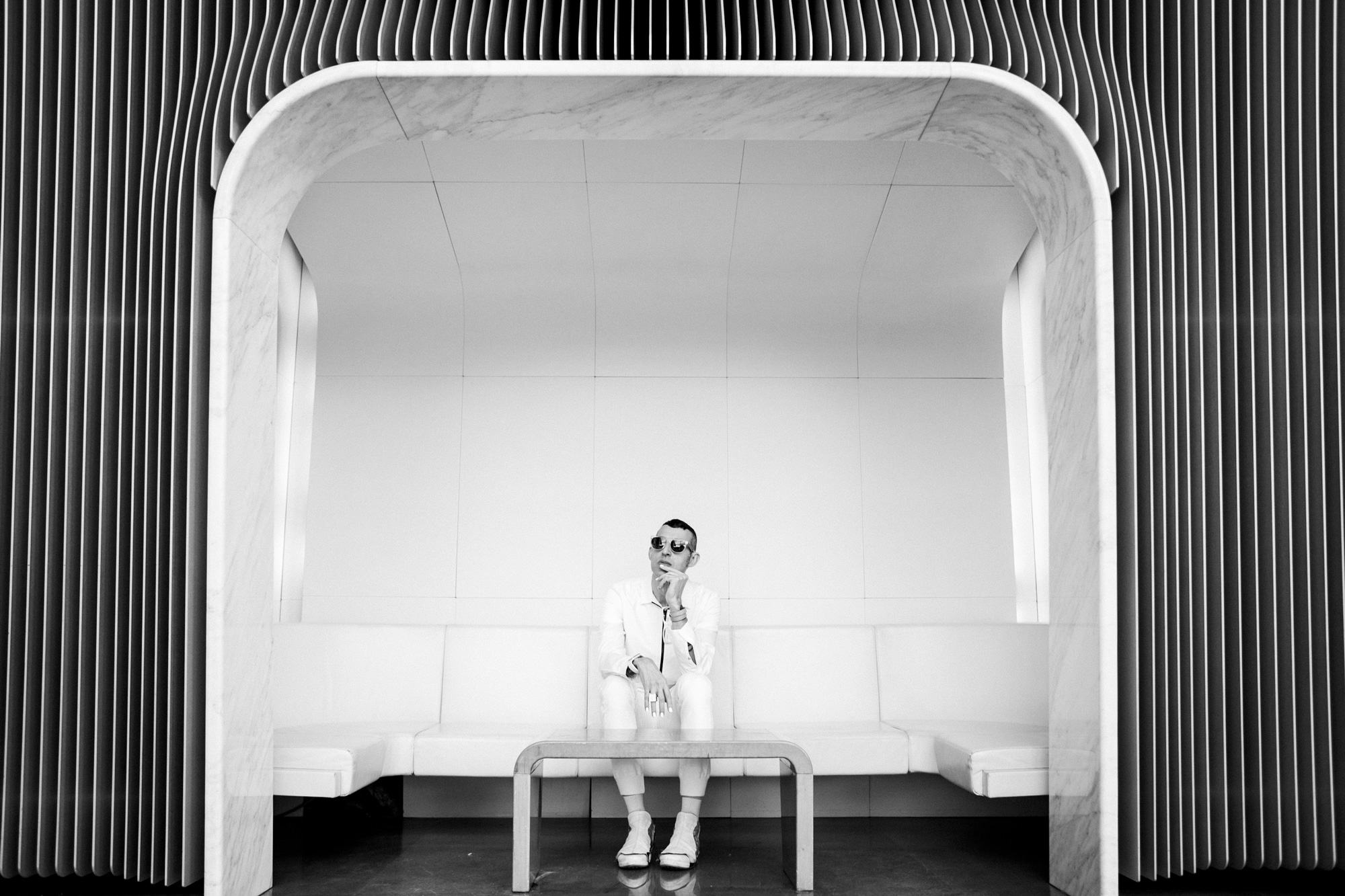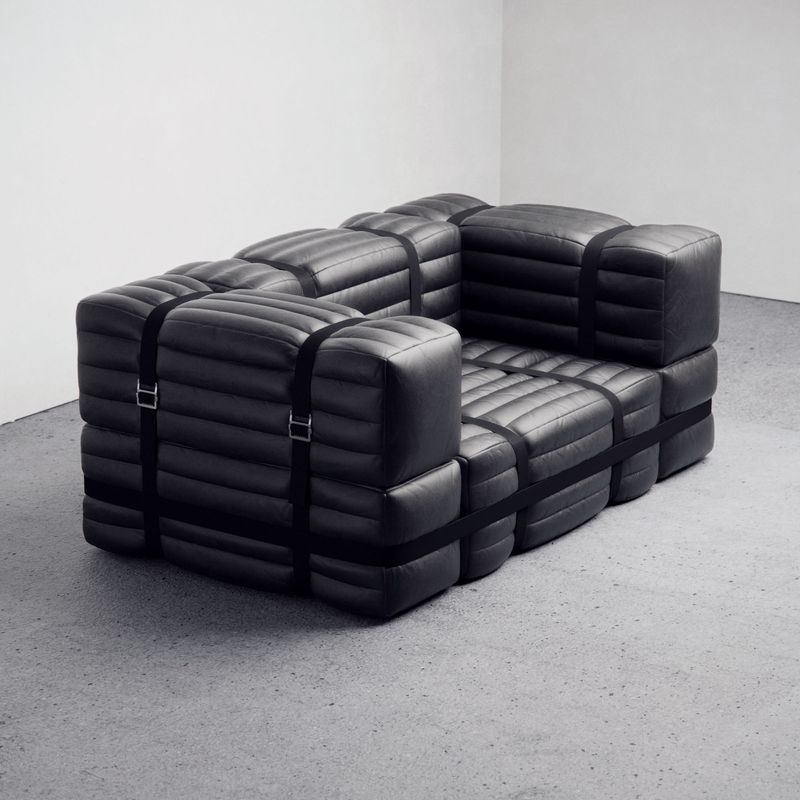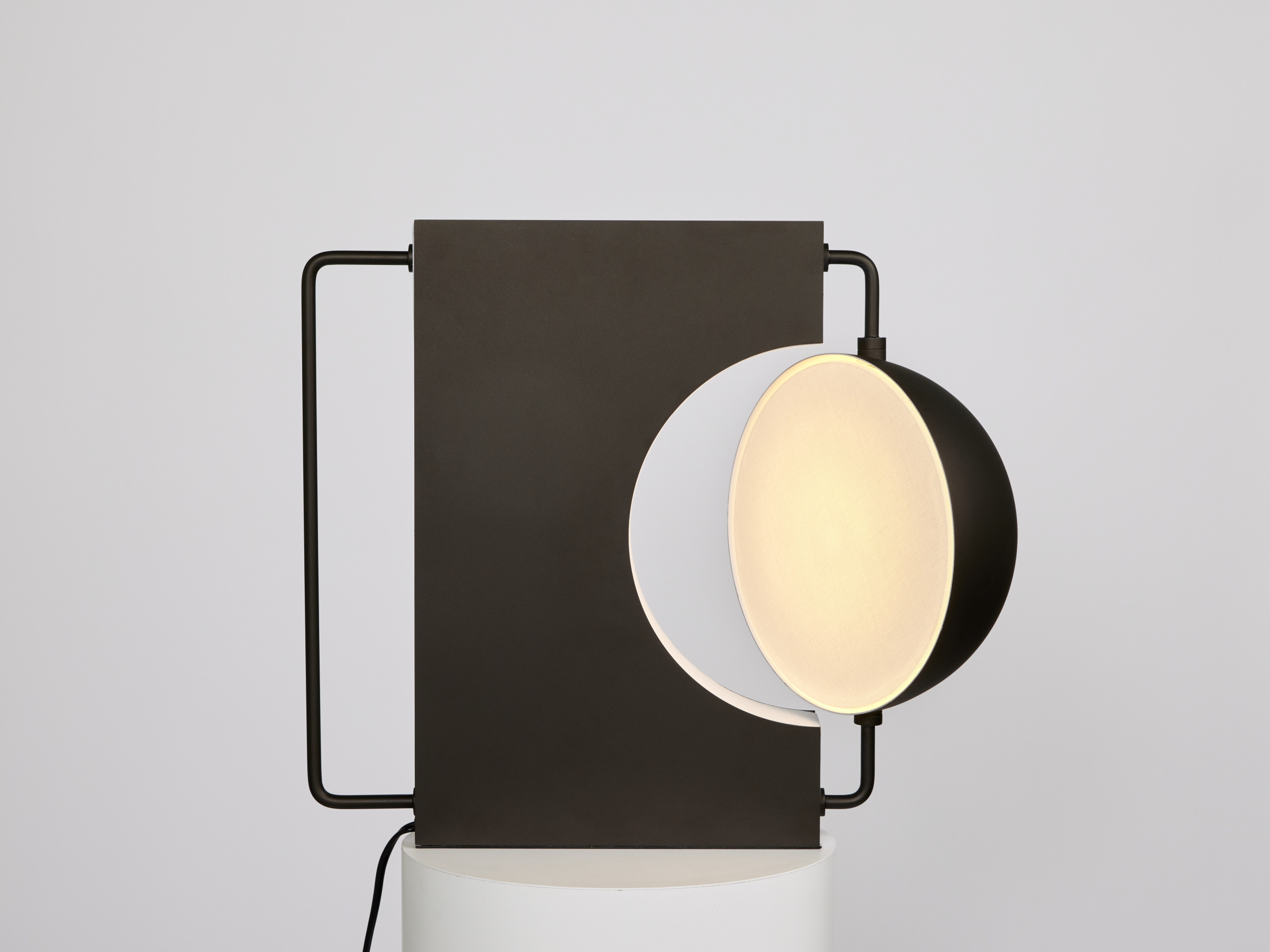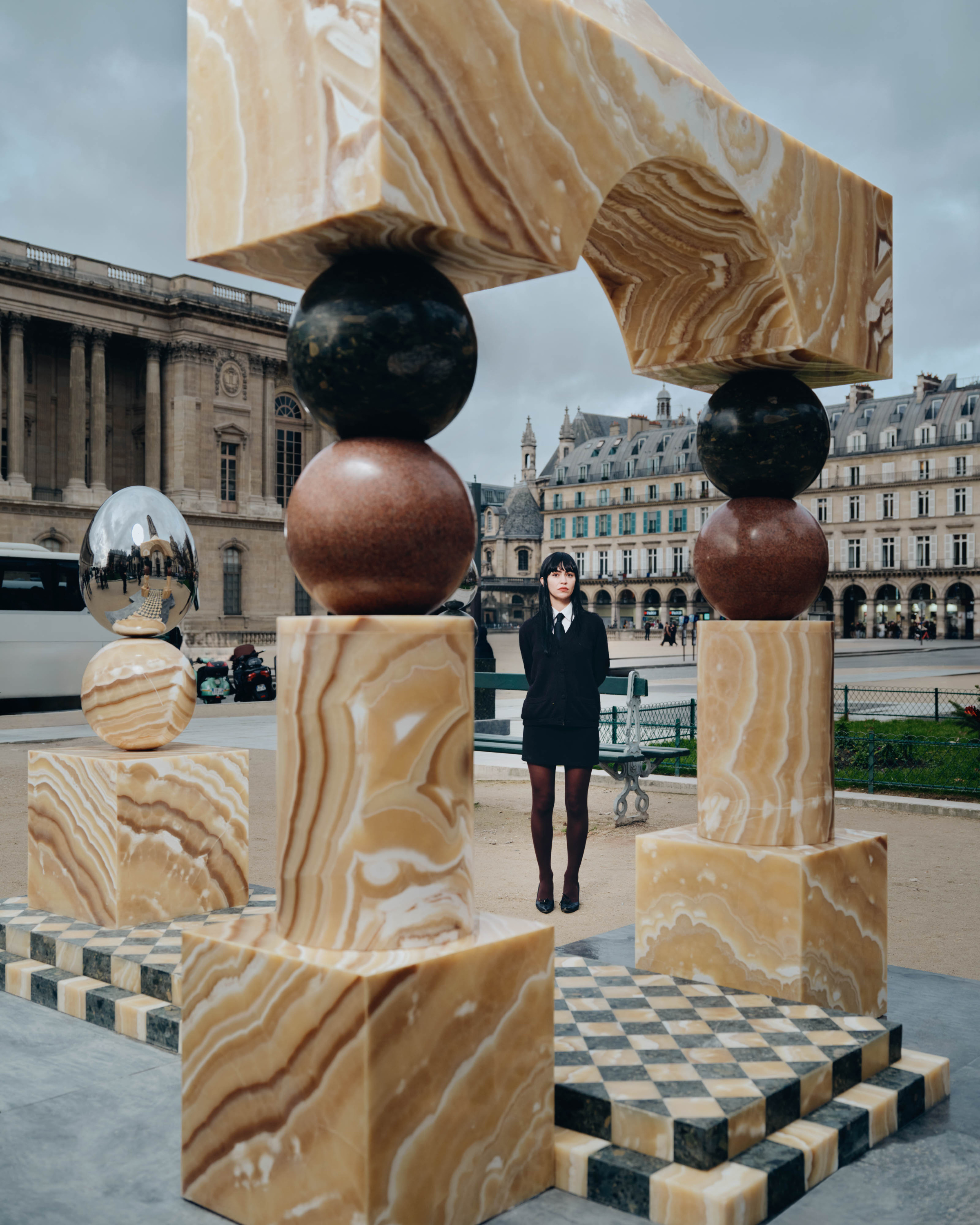When prolific industrial designer Karim Rashid arrives at the office, he heads straight for a strong latte (or two) before answering emails and getting started on the many things on his to-do list, from meeting with studio managers and assistants to doing his own sketching, writing articles, working on proposals, and more. “I probably work on the design of 10 projects in a day,” says Karim, the Egyptian-born, Canadian-raised designer you may know for the Umbra Oh Chair or even New York City manhole covers. He’s also the brains behind Cyborg, a collection of otherworldly table lamps that launched in 2015 and expanded in 2019 to include outdoor lamps as part of a collaboration with Martinelli Luce. The new outdoor Cyborg is built of high-resistance, fiber-reinforced concrete, while the Cyborg interior light collection recently expanded to include a Living Coral color. “While you were dreaming, Cyborg beamed down from above and landed on your bedside table,” Karim likes to say.
The small, friendly Cyborg lamp responds to human contact thanks to touch-sensitive controls. “I love the way it seems to float on the light,” Karim says. “Only in the digital age we have new technologies, production processes, materials, software and tools allowing me to create sensual and organic shapes like Cyborg.” The touch control is his favorite feature, as it draws people in and it’s so tactile and intuitive.
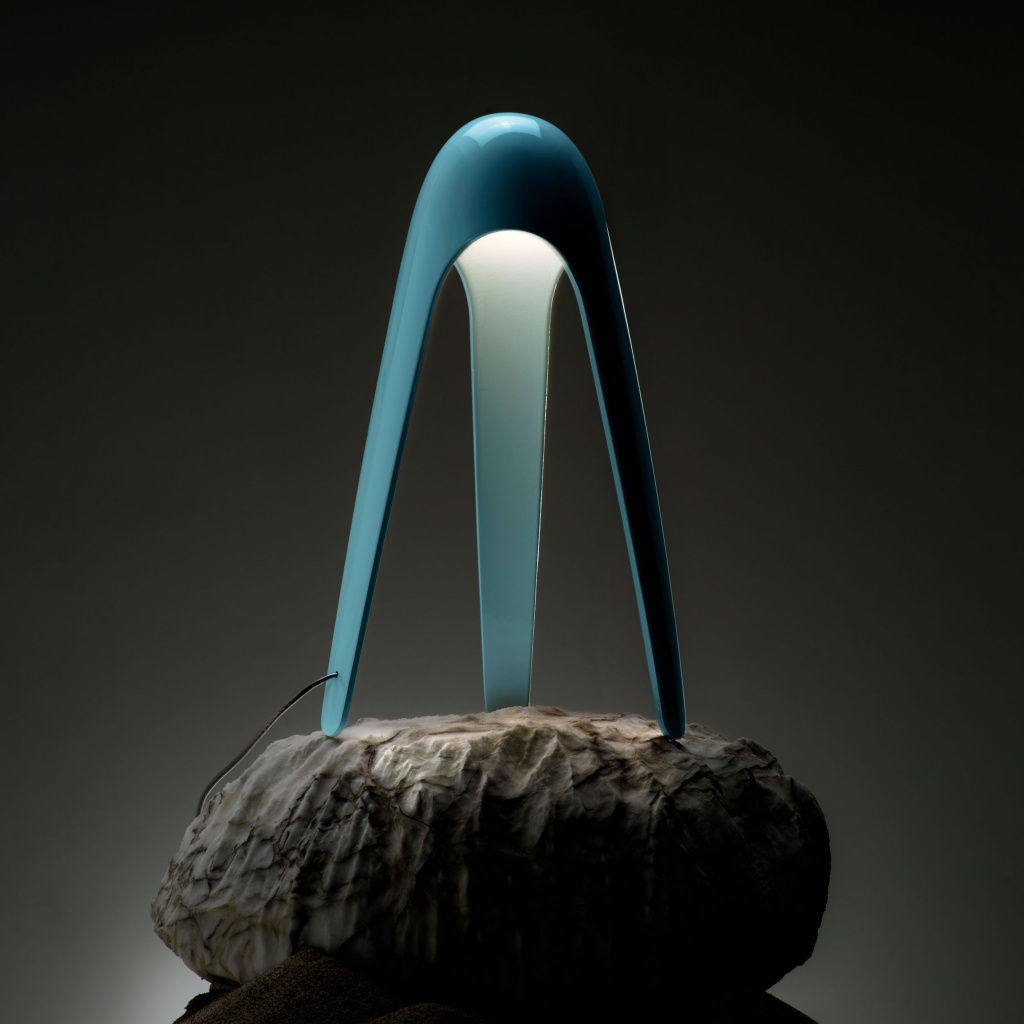
The Cyborg Lamp in the cyan colorway. Photo courtesy of Karim Rashid Inc.
These days Karim spends about half of his time designing. His team includes other designers, including designers who trained as engineers but chose to be industrial designers, architects, graphic designers, branding experts, and interior designers. “My office is not so large, only 15 to 18 people for the last 15 years, so the work and process does not lose quality and I can control and design everything. I am a Virgo after all,” he says.
Karim himself is a pro at managing work/life balance, staying organized and focusing on one or two projects at a time, as well as staying physically and mentally healthy—working out and spending time with his daughter. “My social life lacks, but I travel almost weekly so my events and the 136 countries I have been to create my social life. My life is my occupation,” he says.
But he didn’t always dream of being solely a designer. As a child he wanted to be a mathematician if not a designer. Today he says if he couldn’t design he’d consider being an electronic dance musician or motivational speaker.
Karim says he’s not truly happy unless he’s busy accomplishing something, though, even if it’s something small. “I always said, ‘Make your hobby your job,’ then you will be truly happy and contribute more to this world. I don’t think of life as work versus fun; I see it as bringing meaning to one’s life. But I also stay relaxed by working out every day, drinking and eating raw organic foods, sleeping seven hours a night, and frequently getting massages.”
Whatever his philosophy is, it seems to be working as he’s received more than 400 awards in the 25 years since he moved to New York City. But he says recognition from peers is just one marker of success. “The real accolade is seeing my objects in average people’s homes, or to see a space realized, enjoyed, and experienced by people. Design is for people, not for museums. The highlight now is to see that more than 1 million people on Facebook like me because I always saw design as a populist act, not an elitist act.”
As for the future, he expects that even in a world of hyper-consumption, we’ll own nothing. “We lease cars, we lease houses, and soon we will learn to lease everything, experience it for a short while, and go on to the next. We will create a forever dynamic, ever-vast changing human condition where everything will be cyclic, sustainable, biodegradable, customizable, personalizable, and seamless,” Karim says. “This is utopia, this is freedom, and this is nirvana. All the goods in the world will only exist if they give us a new or necessary experience.”
This article originally appeared in the Fall/Winter 2019 issue of Sixtysix with the headline “Karim Rashid.” Subscribe today.
Read more about the Cyborg Lamp and five other design pieces in our take on the perfect reading room.
